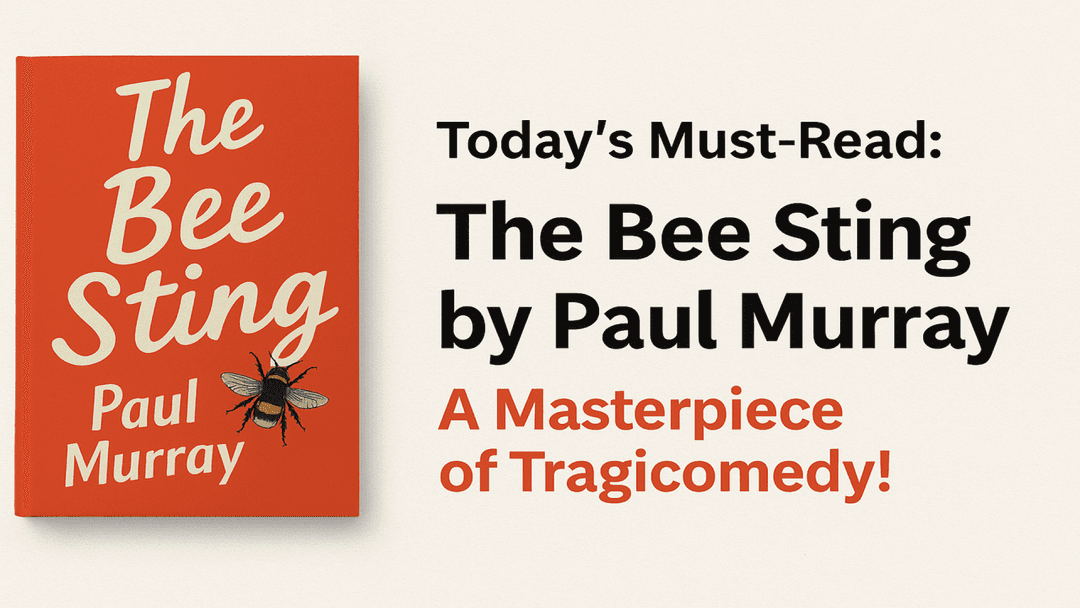What if the most powerful story you read this year didn’t roar — but whispered?
we revisit a novel that didn’t make noise when it was first published in 1965, but decades later, quietly claimed a place in the hearts of readers around the world: Stoner by John Williams.
It’s not about addiction. Or rock music. Or rebellion.
It’s about a man named William Stoner — a farm boy who becomes an English professor. He doesn’t start a revolution. He doesn’t win great acclaim. He lives a modest life. He suffers, he loves, he loses. And in doing so, he becomes unforgettable.
The Quiet Revolution of William Stoner
At first glance, William Stoner's life might appear unremarkable. Born to poor Missouri farmers, he discovers a passion for literature at university that alters the course of his life. He becomes a professor, endures an unhappy marriage, navigates departmental politics, experiences a brief love affair, and ultimately dies after a mediocre academic career. Yet within this seemingly ordinary existence, Williams crafts an extraordinary meditation on what it means to live authentically.
"In his extreme youth Stoner had thought of love as an absolute state of being to which, if one were lucky, one might find access; in his maturity he had decided it was the heaven of a false religion, toward which one ought to gaze with an amused disbelief, a gently familiar contempt, and an embarrassed nostalgia. Now in his middle age he began to know that it was neither a state of grace nor an illusion; he saw it as a human act of becoming, a condition that was invented and modified moment by moment and day by day, by the will and the intelligence and the heart."
The Art of Restraint
What makes "Stoner" exceptional is Williams' remarkable restraint. The prose is deliberate and clear, devoid of stylistic flourishes yet achieving a quiet beauty through its precision. This restraint mirrors Stoner's own stoic dignity in the face of life's disappointments. The novel teaches us that even a life marked by personal and professional setbacks can possess profound meaning when lived with integrity.
The Academic as Hero
Unlike many campus novels that satirize academia, "Stoner" treats the university as a sanctuary where the pursuit of knowledge and truth remains sacred. Stoner's commitment to literature and teaching becomes a form of heroism—not the dramatic heroism of epic tales, but the quiet heroism of remaining true to one's values despite institutional politics and professional disappointments.
A Mirror for the Invisible
This is a novel for anyone who’s ever wondered if their life mattered. For those who have worked hard, stayed kind, and endured quietly. For those who have loved imperfectly. For those who have been overlooked.
Stoner isn’t a hero in the traditional sense. But in his resilience, in his quiet dignity, he reminds us that there’s beauty — even nobility — in simply living truthfully.
In an age that often celebrates noise, sensation, and spectacle, "Stoner" reminds us of the power of quiet perseverance. William Stoner's life, marked by disappointment yet lived with unwavering dedication to what he loves, offers a kind of redemption that feels both rare and essential in contemporary fiction.
Reader Reflection:
Have you ever felt invisible in your own story? Which books have made you feel seen?
Hit reply and tell us — we’d love to feature your thoughts in our next community letter.
Did you know? John Williams won the National Book Award for his novel "Augustus" in 1973, yet "Stoner" remained largely unknown until its rediscovery decades after publication. Today, many consider it his finest achievement.




